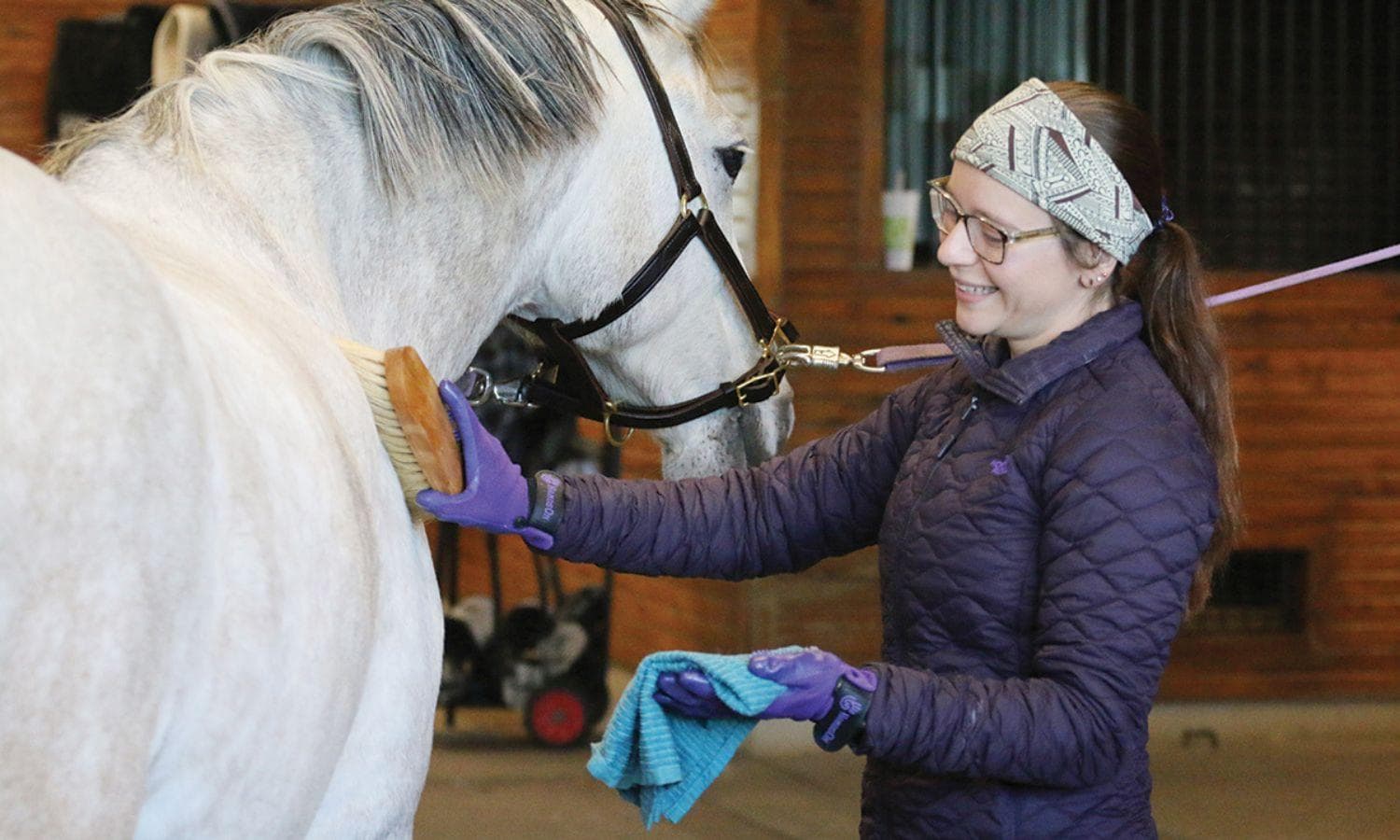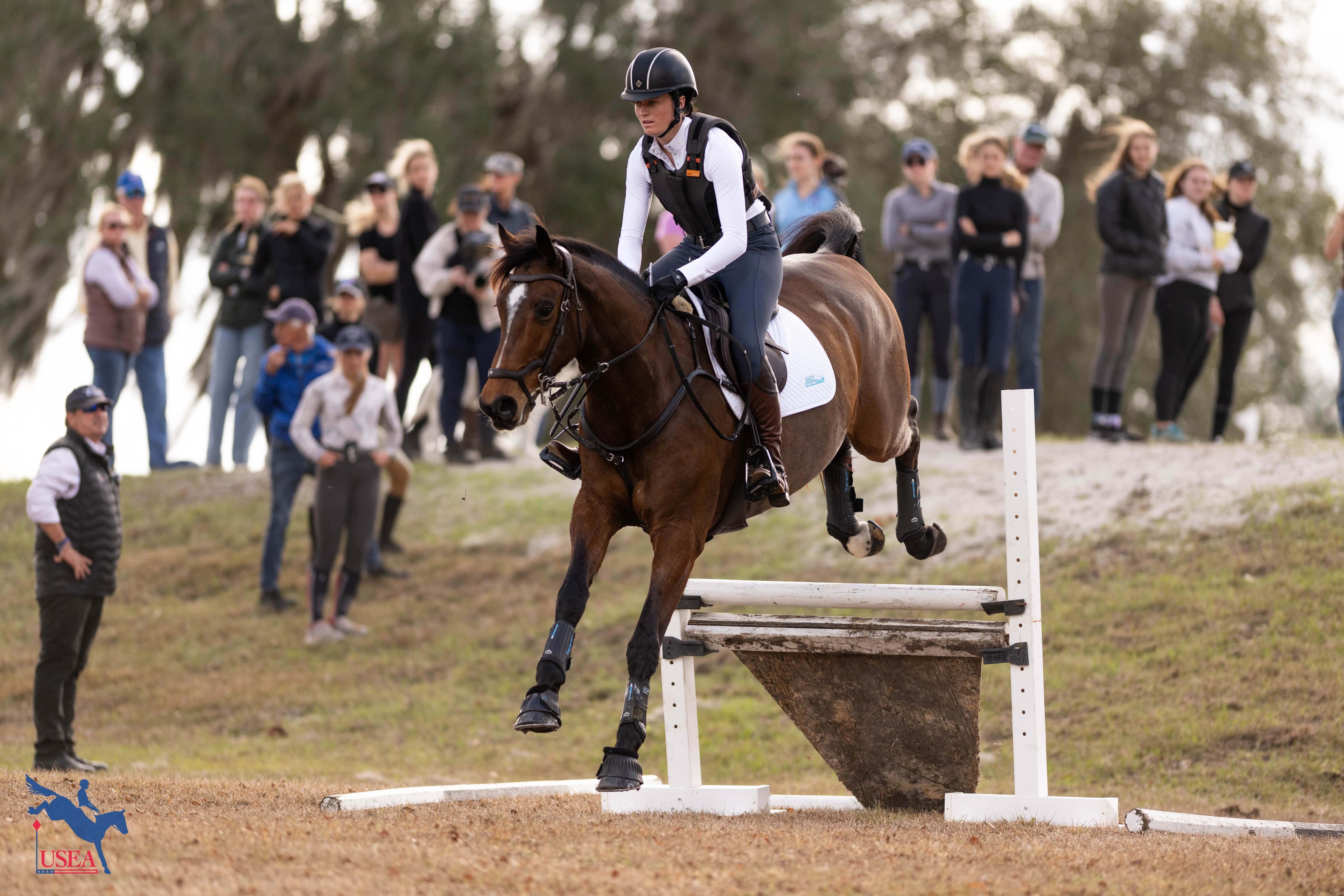Making the Dream Work at Fylicia Barr Eventing
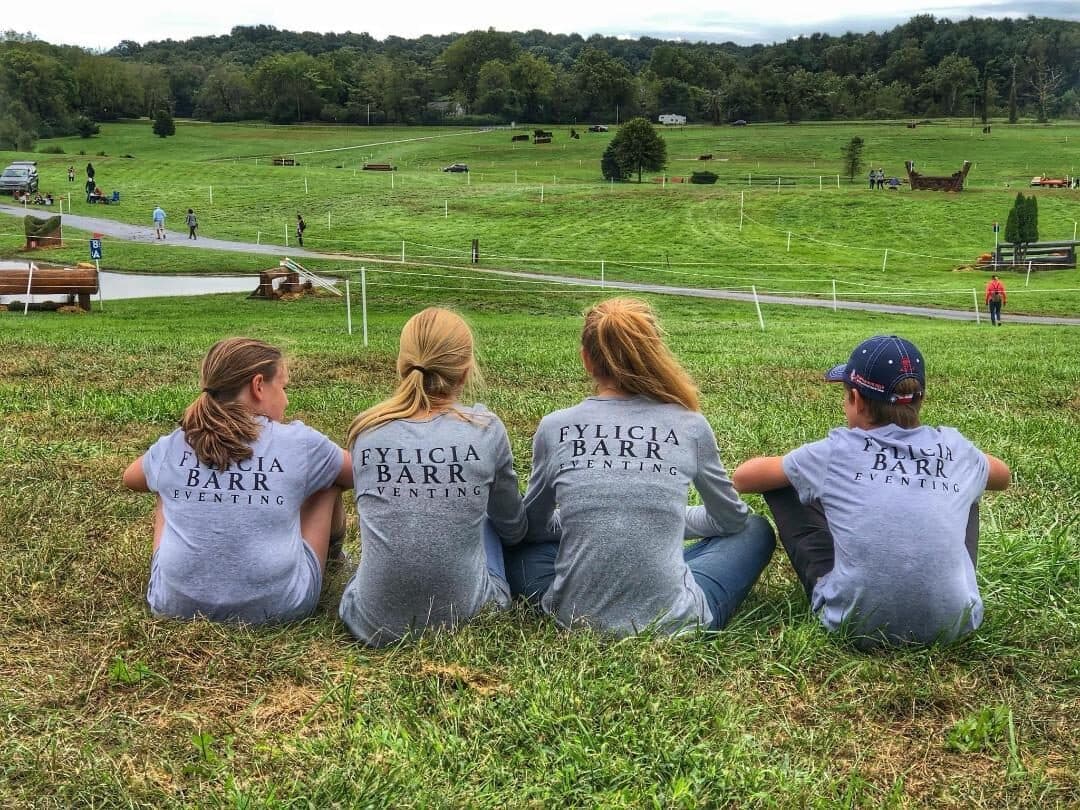
“Teamwork makes the dream work” has become a popular caption on social media feeds of athletes from all disciplines. This phrase seems particularly relevant for those in the eventing world. While the spotlight might shine on a single horse and rider combination during the heat of competition, every event rider understands theirs to be a fundamentally team sport, dependent on the efforts and skillsets of grooms, barn managers, trainers, working students, and often a wide array of friends and family, without whom the strains of competition, training, and travel would not be sustainable. But what exactly goes into the “work” that holds together a team for the long haul?
The very real fact of burnout and the challenges of maintaining a consistent staff at many barns indicate that the ideal of cooperation for mutual benefit is much more elusive than celebratory hashtags might suggest.
One trainer who seems to have cracked the code for building a cohesive and enduring team is Fylicia Barr. In the past several years, Barr’s career has skyrocketed as she and her mare, Galloway Sunrise, have added one achievement after another to their impressive resume. These include a first-place finish at the CCI4*L at Jersey Fresh in 2019; a first-place finish in the Advanced division at the Maryland Horse Trials in 2020; being named to the USEF Eventing 25 Emerging Athlete Program and the USEF Future Team Challenge in 2020; and a successful debut at the Land Rover Kentucky Three Day Event in 2021. Barr’s first syndicate horse, Quantum Cooley, is currently the highest-placed 4-year-old in the country as they head toward the Young Event Horse Championships at Fair Hill this fall.
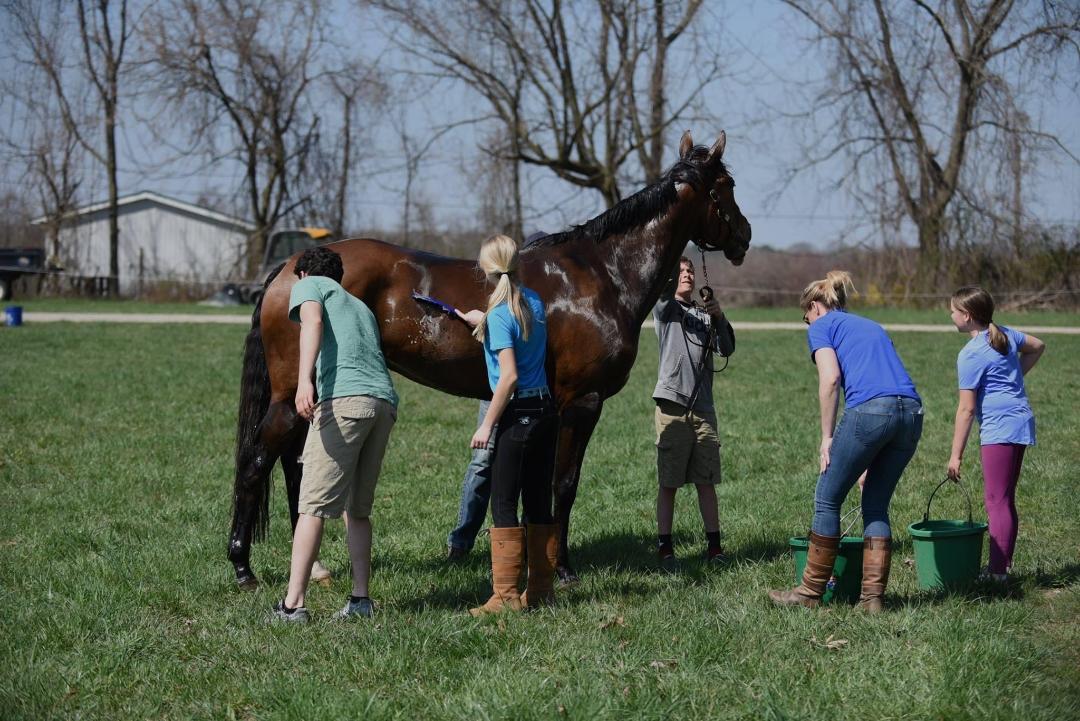
While these accomplishments have earned her significant accolades as a rider, it is clear from every aspect of Barr’s farm in Kennett Square, PA that teamwork is at the center of her operation. The leadership team consists of Barr, her assistant Melanie Schaefer, and Dawn Nelson, who, until recently, served as a full-time barn manager and still helps with every aspect of the business. Together, they oversee a barn of some 20-25 horses in the heart of Area 2. Barr’s clients range from those just starting their competition careers to riders at the upper levels. Many have been with her for over five years and regard her as family. At any given competition, it is clear from seeing the FBE team in action that their unity and support for one another are unwavering. Reflecting on the qualities and practices that have made theirs such a strong unit for so long, Barr, Schaefer, and Nelson emphasized three key components: respect; work ethic; and communication.
For Barr, one of the most important aspects of creating a strong team is respect. “There’s a way you can run your business and be kind and still pull the best out of people,” Barr says. “You can set boundaries but also make a conscious effort to treat people with the respect they deserve.” Fundamental to cultivating respect is one skill set that many might overlook: emotional self-regulation. Just as a good rider does not let emotions get in the way of a ride, the ability to control one’s own responses and reactions to any given event is key to maintaining a respectful and high-performing barn environment. “There’s no lashing out,” Nelson says. “Nobody has to be afraid of a backlash if someone is having a bad day.” Barr herself exemplifies this positivity, and she quietly expects the same of those who ride with her. “I understand that everyone has bad days; people and horses,” Barr says. “But it’s important not to hold on to it.” If she senses that someone is having an off day, she might suggest that person go for a hack to dissipate the negative energy. “Fylicia always finds something positive in every situation,” Nelson adds. This positive energy is crucial to creating an atmosphere of respect and is maintained by practices like group chats that offer a forum for everyone at the barn to support one another and celebrate each other’s accomplishments. “We’ve set it up so that everyone feels competitive but not against each other,” Barr says.
A shared work ethic is another key component of Barr’s team. “Everyone does everything here,” Schaefer says.
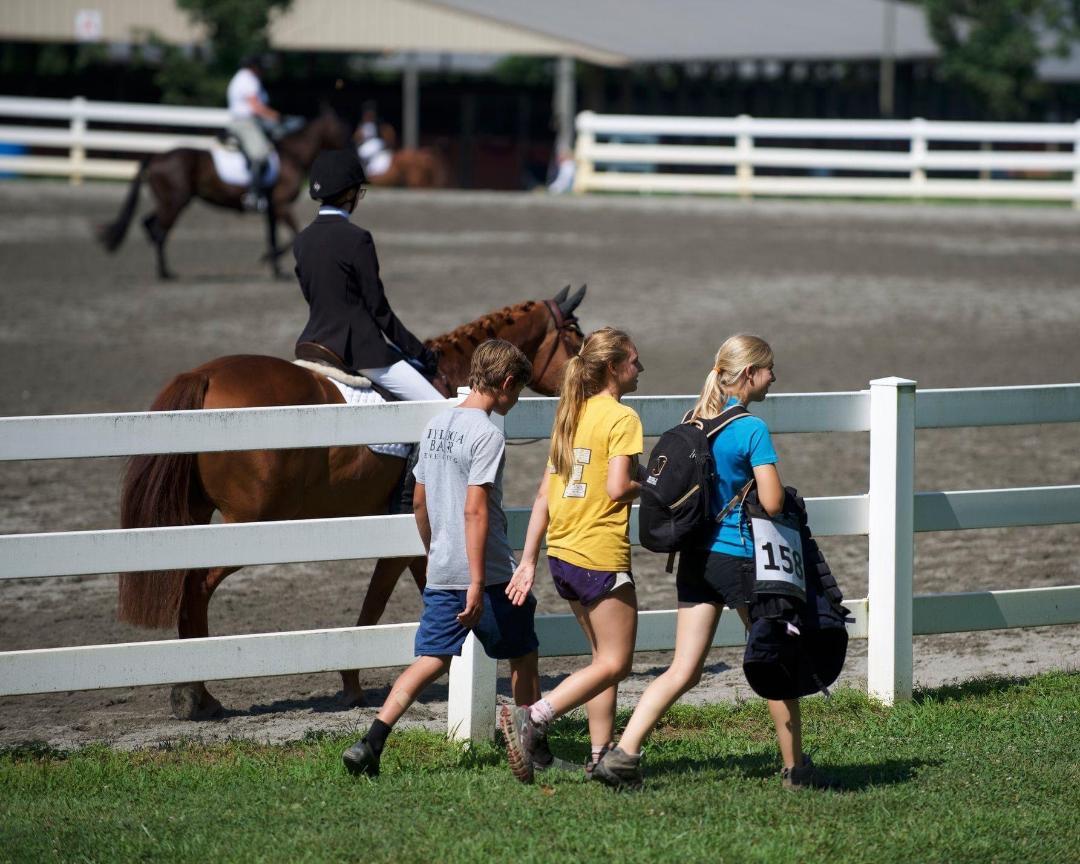
“Nobody expects to come and get on a horse that has been perfectly groomed for them.” For Barr, hard work and “the desire to put that extra bit in” is the greatest proof that riders want to be there. “Everyone rides when it’s hot; we ride in the pouring down rain,” Schaefer says. “At shows, everybody is riding and grooming and cheering and helping and supporting each other.” The expectation at Barr’s barn is that every person on the team will pull his / her weight and support others. “When other people see that, it sets an example,” Schaefer emphasizes.
Finally, clear and consistent communication is central to the smooth operation of the farm. Every morning begins with a team meeting so that the leadership team can coordinate rides and lesson schedules as well as address any issues that arise. The meeting not only serves as a logistical necessity but establishes a positive tone for the rest of the day and reaffirms the underlying values of respect and shared hard work. “Nobody barks orders,” Schaefer says. “It’s always an ongoing conversation.”
These qualities of respect, shared work ethic, and communication were put to the test in the winter of 2021 when the FBE team took advantage of schools going online to spend the winter season in Aiken. For two and a half months, a pod of 12 people shared a 5-bedroom house that also served as an online schoolroom for the young riders in the group. “The only way it was going to work for us to go to Aiken was for us all to be a team and work together,” Schaefer says. Despite the cramped quarters, the season was a success with no drama ever disrupting the group. Besides training and competing together, the team took advantage of the situation to strengthen their connection as an extended family. “Everybody helped with chores. We had weekly game nights. We took turns cooking dinner,” Nelson recalls. “We ended up the season with the best competition results we ever had.”
Barr emphasizes that hers is a barn filled with different personalities – of both riders and horses – but everyone there shares the same goals. At the end of the day, all of the hard work that goes into building a resilient team is aimed toward keeping those goals front and foremost for all of her clients and students.


